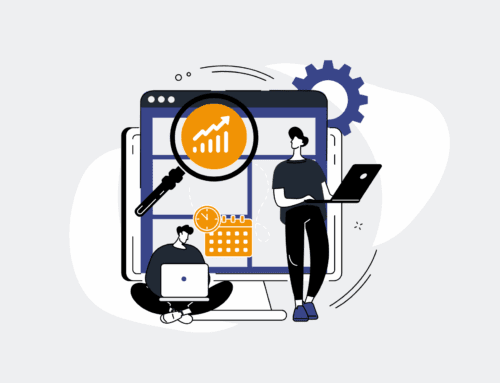Industry Report: Companies Accelerating CRM Migrations for Agility
The pace of business has never been more demanding. In an environment defined by rapid change and fierce competition, the ability to adapt, innovate, and respond quickly is paramount. This imperative for agility is driving a significant trend across industries: an accelerated migration away from legacy CRM systems towards more modern, flexible platforms. For many organizations, the question is no longer if they should migrate, but how swiftly and securely they can make the leap to unlock unprecedented operational efficiency and strategic nimbleness.
Recent industry reports indicate a notable surge in CRM migration projects, with companies citing a primary desire for enhanced agility. Legacy systems, often characterized by rigid structures, limited integration capabilities, and cumbersome user interfaces, are proving to be significant bottlenecks. They impede data fluidity, hinder cross-departmental collaboration, and ultimately slow down critical business processes, from sales and marketing to customer service and even HR and recruiting operations.
The Urgency Behind the Shift: Why Now?
Several factors are contributing to this heightened urgency. Firstly, the explosion of data across various touchpoints demands a CRM that can not only store but intelligently process and analyze information to provide actionable insights. Older systems often struggle with the sheer volume and diversity of modern data, leading to fragmented views of customers and prospects. Secondly, the rise of AI and automation tools has created an expectation for seamless, automated workflows. Businesses realize that a truly agile operation leverages technology to eliminate repetitive, low-value work, freeing high-value employees to focus on strategic initiatives. A CRM migration is often the foundational step to enable this widespread automation.
Furthermore, cybersecurity concerns are pushing companies towards newer platforms with robust, built-in security features and compliance frameworks. Protecting sensitive customer and operational data is non-negotiable, and the ability to confidently migrate data without loss or exposure is a top priority. Finally, the need for scalability is ever-present. As businesses grow and expand into new markets, their CRM must be able to scale effortlessly without requiring massive reconfigurations or incurring prohibitive costs. This calls for cloud-native, modular systems that can evolve with the business.
Beyond the Switch: Ensuring Data Integrity and Operational Continuity
While the benefits of modern CRMs are clear, the migration process itself can be daunting. Concerns about data loss, system downtime, and the disruption of ongoing operations often give business leaders pause. This is where strategic planning and expert execution become critical. A successful migration isn’t just about moving data; it’s about transforming how a business operates. It requires meticulous data mapping, cleaning, and validation, alongside comprehensive system configuration and user training.
At 4Spot Consulting, we approach CRM migrations not merely as a technical task but as a strategic business initiative. Our OpsMap™ framework begins with a deep dive into your current processes, identifying inefficiencies and mapping out opportunities for automation. This ensures that your new CRM isn’t just a shiny new tool, but a fully optimized engine designed to eliminate bottlenecks, reduce human error, and drive revenue growth. We understand that data is the lifeblood of your organization, which is why solutions like CRM-Backup.com are integral to our approach, providing a critical layer of security and peace of mind during and after migration, particularly for platforms like Keap and HighLevel.
4Spot Consulting’s Approach: Automation, AI, and Agility in Migration
Our experience with high-growth B2B companies consistently shows that the most successful CRM migrations are those that integrate automation and AI from the outset. By leveraging tools like Make.com, we create sophisticated integrations between your new CRM and dozens of other SaaS systems, establishing a true “single source of truth.” This not only accelerates the migration process by automating data transfers and validations but also ensures that your new ecosystem is instantly more capable and agile.
Consider the HR and recruiting functions, often heavily reliant on CRM-like systems. Automating the intake, parsing, and syncing of candidate data into a new recruiting CRM can save hundreds of hours monthly, as we’ve demonstrated with clients who achieved significant production increases. This isn’t just about speed; it’s about freeing up high-value recruiters and HR professionals from manual data entry to focus on strategic talent acquisition and employee experience. Our OpsBuild™ service is designed to implement these complex, interconnected systems, ensuring your CRM migration transforms into a launchpad for broader operational excellence.
The Path Forward: Secure Your Future with Strategic Migration
For organizations looking to accelerate their CRM migrations, the path to agility is clear: combine strategic planning with expert automation and a robust data backup strategy. The goal is to not just transfer data but to build a more resilient, efficient, and scalable operational foundation. By doing so, companies can navigate the complexities of modern business with confidence, turning the challenge of migration into a powerful competitive advantage.
Ready to uncover automation opportunities that could save you 25% of your day and revolutionize your CRM strategy? Book your OpsMap™ call today.
If you would like to read more, we recommend this article: Your Guide to Secure HR & Recruiting CRM Migration with CRM-Backup








